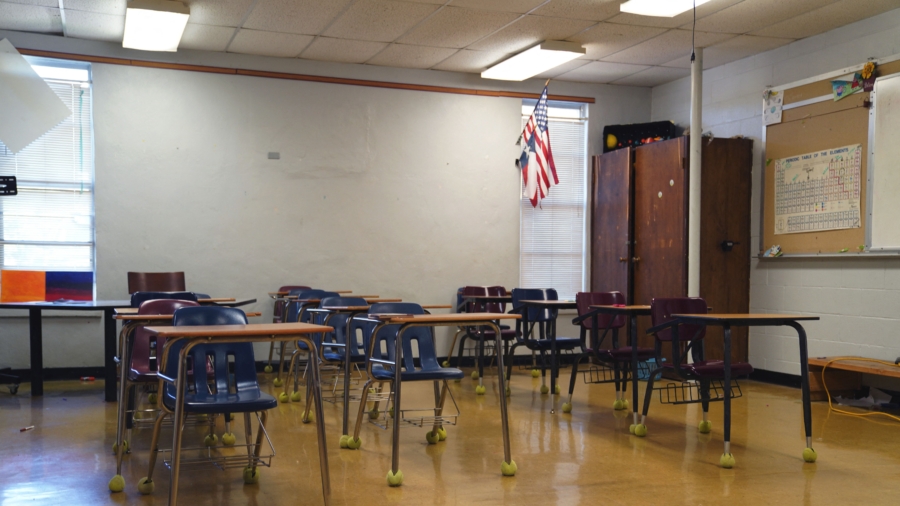The College Board, which develops college-level Advanced Placement (AP) courses for high school students, has admitted to making some mistakes in its rollout of a new high school course on African American Studies that has invited controversy.
Republican Florida Gov. Ron DeSantis opposed an early iteration of the course after the state’s Department of Education determined parts of the course violated Florida’s new “Stop Woke Act.” The Stop Woke Act prohibits schools from teaching that people are inherently sexist or racist by virtue of their race or sex or that members of certain races or sexes bear responsibility for actions committed in the past by other members of their race or sex.
An early iteration of the AP African American Studies course included segments on Black Lives Matter and debates over the topic of race-based reparations. The course also included secondary discussions of critical race theory and queer social movements. On Feb. 1, the College Board released an updated version of the course that dropped several of the same controversial portions with which the DeSantis administration raised issues.
On Saturday, the College Board issued a statement saying it made mistakes both in how it rolled out the new course and in how it responded to criticisms of the course by the DeSantis administration. The board said these mistakes allowed DeSantis to advance a political agenda.
“There is always debate about the content of a new AP course. That is good and healthy; these courses matter. But the dialogue surrounding AP African American Studies has moved from healthy debate to misinformation,” the College Board said. “We are proud of this course. But we have made mistakes in the rollout that are being exploited.”
Not Enough Pushback
The College Board said its first mistake was in “not immediately denouncing the Florida Department of Education’s slander, magnified by the DeSantis administration’s subsequent comments.”
The organization also said it should have been more clear that controversial topics like the Black Lives Matter movement, and discussions of reparations and mass incarceration were “optional topics” in a pilot version of the course. The organization that by not making clear that these portions of the course were “optional,” the decision to remove them from the course “allowed the narrative to arise that political forces had ‘downgraded’ the role of these contemporary movements and debates in the AP class.”
The organization said that rather than watering down topics like Black Lives Matter and reparations, the course now has students devote three weeks to a topic of their choosing, which counts as 20 percent of the student’s AP Exam score for college credit. The organization said students would be encouraged to focus their projects on contemporary issues and debates.
The College Board also denied conversations with the Florida Department of Education (FDOE) had a significant impact on the changes they made to the course.
“While it has been claimed that the College Board was in frequent dialogue with Florida about the content of AP African American Studies, this is a false and politically motivated charge,” the College Board said.
The board said its communications with the FDOE consisted of the state requesting a pilot course code and then the board’s response to recent claims by the FDOE that the AP African American Studies course “lacks educational value.” The board said it had no real negotiations with the DeSantis administration over the course materials.
The board said when it asked the DeSantis administration for feedback on the course, the FDOE asked questions like “What does the word ‘intersectionality’ mean?” and “Does the course promote Black Panther thinking?” The board said it asked the FDOE to explain its specific concerns in detail, but said they never actually did and instead “repeated the same rejection but now with inflated rhetoric and posturing.”
DeSantis Responds
Several political commentators have accused DeSantis of “erasing black history” over his administration’s opposition to the AP African American Studies course.
During a Monday press conference, DeSantis responded to the College Board’s claims about the AP course.
“The College Board was the one that—in a black studies course—put queer theory in. Not us—they did that,” DeSantis said. “They were the ones that put in intersectionality. They put in other types of neo-Marxism into the proposed syllabus. This is the proposed course. So, our Department of Education looked at that and said, ‘in Florida, we do education, not indoctrination.’”
In an emailed statement to NTD, DeSantis spokesman Bryan Griffin noted the College Board dropped 19 topics from its AP African American Studies course, “many of which FDOE cited as conflicting with Florida law, including discriminatory and historically fictional topics.”
Among the topics dropped from the AP course were:
- Reframing Early African History in African American Studies
- The Fire Next Time: Evaluating the Civil Rights Movement and the Nation of Islam
- The Fire Next Time: Achieving Our Country
- The Social Construct of Race
- Intersectionality
- Afrocentricity
- Tools of Black Studies Scholars
- Incarceration, Abolition, and the New Jim Crow
- Reparations
- The Movement for Black Lives
- Black Study and Black Struggle in the 21st Century
“At the end of the day, we highlighted things that were very problematic. It wasn’t just people like me saying that. Across the political spectrum, people were saying that—this really is junk,” DeSantis said. “Why don’t we just do and teach the things that matter? Why is it always that someone has to try to jam their agenda down our throats?”
DeSantis also suggested the Florida education system could reevaluate its relationship with the College Board.
“Nobody elected [the College Board] to anything. They’re just kind of there and they’re providing a service,” DeSantis said. “And so, you can either utilize those services or not, and they’ve provided these AP courses for a long time. But you know, there are probably some other vendors who may be able to do that job as good or maybe even a lot better.”

